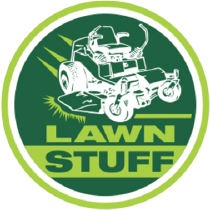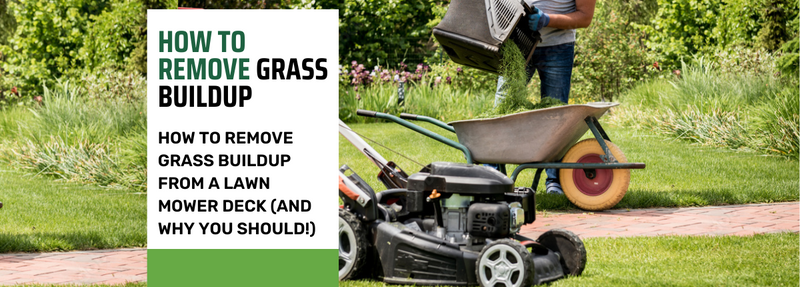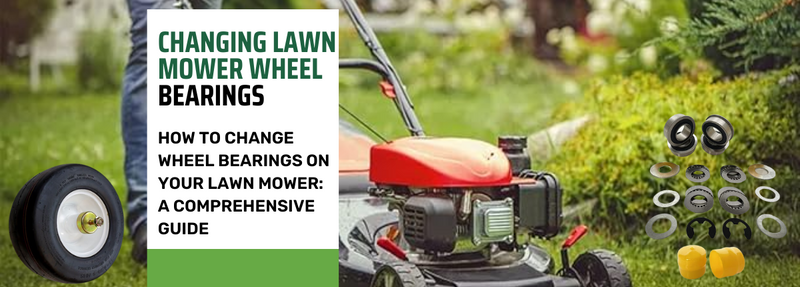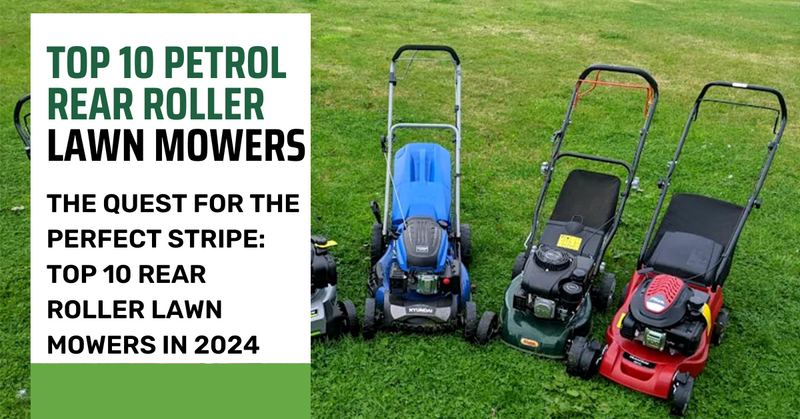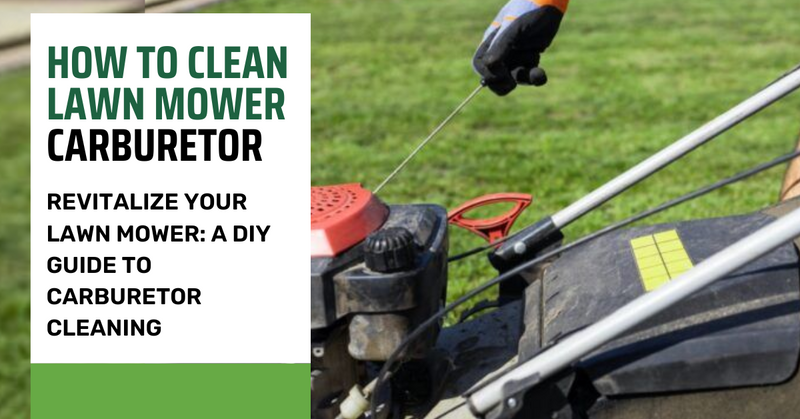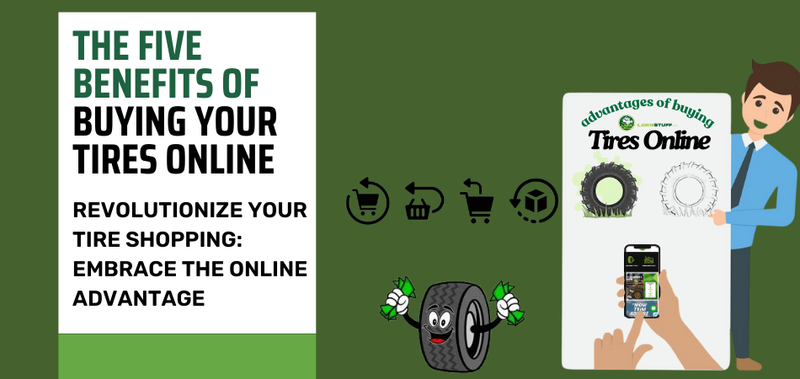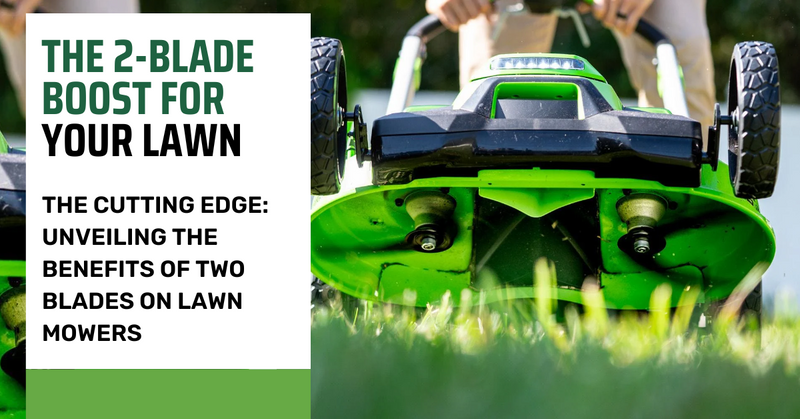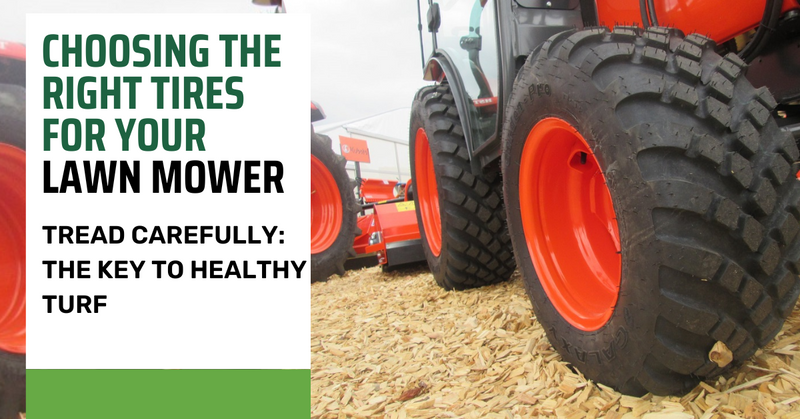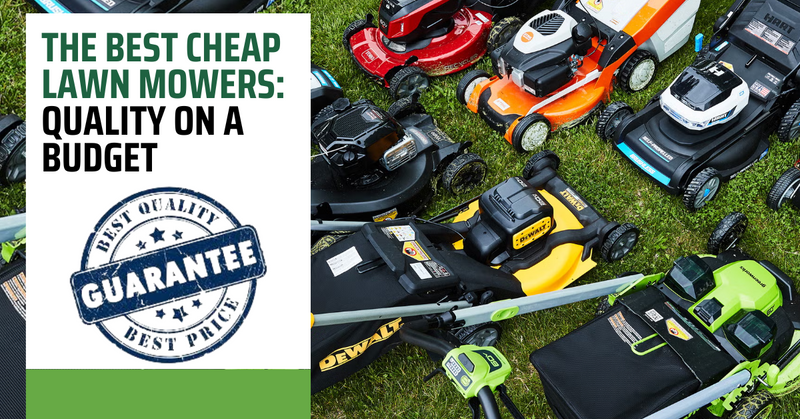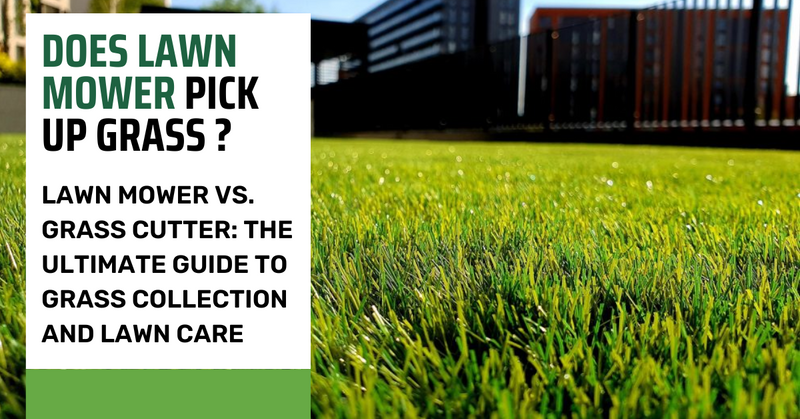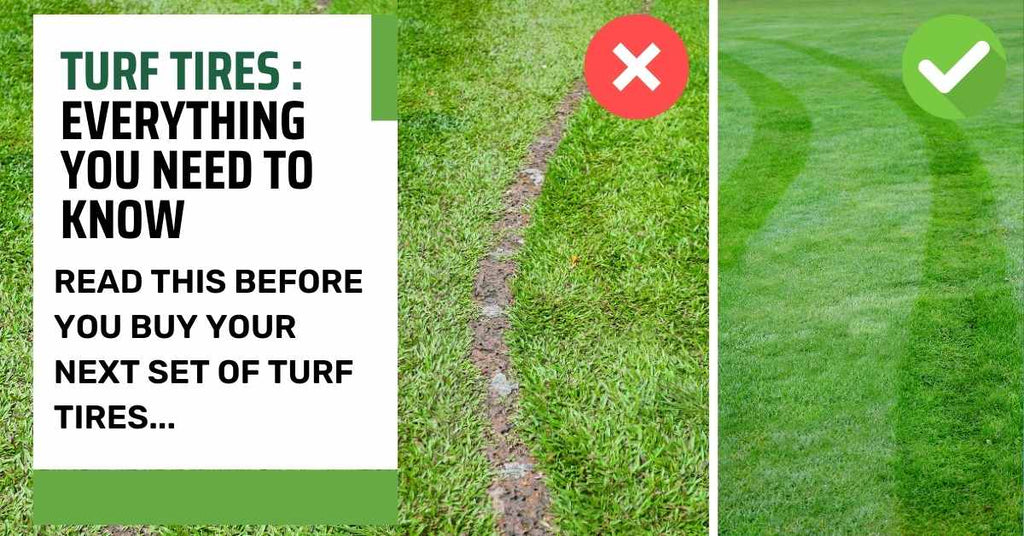

Turf tires, often referred to as lawn and garden tires, are designed with a specific purpose in mind—to provide optimal traction and minimize lawn damage. A turf tire's unique tread pattern makes them the ideal choice for various grassy terrains, ensuring that your lawn remains unharmed.
1. Are Turf Tires Safe For Your Lawn or Golf Course?
The enhanced traction of turf tires ensures that your lawn equipment can navigate your beautiful landscape with ease. Whether you're mowing on uneven ground or steering a heavy-duty lawnmower around tight corners, turf tires provide the stability and grip needed to get the job done efficiently and with minimal damage. For golf course superintendents and groundskeepers, this translates into smoother and more precise maintenance routines, ultimately improving the overall playing experience.
2. Types of Turf Tires.
1. Residential Turf Tires
Designed with homeowners in mind, residential turf tires strike a balance between performance and affordability. They are perfect for lawn tractors and riding mowers used on smaller lawns.
2. Commercial Turf Tires
Commercial turf tires are built to withstand heavy-duty use, making them a favorite among landscaping professionals and golf course maintenance crews. They excel in providing superior traction and durability.
3. Turf Saver Tires
Turf saver tires are the go-to choice for preventing lawn damage. Their gentle tread design is perfect for push mowers and small garden tractors.
3. Selecting the Right Turf Tires

1. Lawn Terrain
Start by assessing your lawn's terrain. Is it flat or hilly? Does it have rough patches, tree roots, or rocks? The type of terrain plays a crucial role in selecting the right turf tires.
-
For Flat Lawn: If your lawn is mostly flat and smooth, standard turf tires should suffice. They provide good traction without causing excessive wear on the grass.
-
For Hilly Terrain: For sloped lawns, consider turf tires with deeper treads or ones designed for improved traction. This extra grip can help prevent slippage on inclines.
-
For Rough Terrain: If your lawn has rough patches, such as areas with tree roots or rocks, opt for puncture-resistant (6-ply or 8-ply) or semi-pneumatic tires. These can withstand rough surfaces without going flat.
2. Tire Type
When it comes to turf tires, there exists a variety of options, each possessing distinct attributes:
- Air-Filled Pneumatic Tires: These tires share a resemblance with the ones commonly found on automobiles. They excel in absorbing shocks, rendering them well-suited for uneven terrain. However, they might necessitate occasional upkeep, such as the monitoring and adjustment of tire pressure.
- Puncture-Resistant Solid Tires: Solid tires are impervious to punctures and demand minimal maintenance. They serve as an excellent choice for areas prone to sharp objects that could potentially puncture pneumatic tires. It's worth noting that they provide less cushioning, which may translate to a slightly more robust ride.
- Hybrid Semi-Pneumatic Tires: These tires present a balanced compromise, amalgamating the advantages of both pneumatic and solid tires. They offer a degree of shock absorption while exhibiting heightened resistance to punctures when compared to their pneumatic counterparts.
- Flat-Free Airless Tires: Michelin Tweel
3. Tire Size
The size of your lawnmower's tires can affect its performance. Larger tires generally offer better traction and stability, especially on uneven terrain. Check your lawnmower's specifications or manual for the recommended tire size.
4. Tire Tread Pattern
The tread pattern on turf tires can vary. Tires with deeper treads provide better traction and are ideal for hilly or slippery areas. If your lawn is relatively flat, a standard tread pattern should suffice.
5. Load Capacity
Consider the load capacity of the tires in relation to your lawnmower's weight and any additional attachments or accessories you use. Overloading the tires can lead to premature wear and reduced performance.
6. Brand and Quality
Invest in reputable tire brands known for their quality and durability. Quality tires are more likely to withstand the rigors of lawn mowing and provide consistent performance.
4. Proper Maintenance for Turf Tires

Maintaining your turf tires is vital not only for the longevity of the tires themselves but also for the well-being of golf course greens and fairways. Here are essential maintenance tips to ensure your turf tires perform at their best:
1. Regular Pressure Checks
Consistently monitor and maintain the proper tire pressure. Under-inflated tires can lead to increased soil compaction and damage to the greens. Over-inflated tires may result in a rougher ride for equipment operators and can increase the risk of turf damage. Refer to the manufacturer's guidelines or your golf course's specific requirements for the correct tire pressure.
2. Visual inspection
Perform visual inspections of your turf tires before each use. Look for signs of wear, damage, or embedded debris. Remove any foreign objects, such as rocks or nails, which can puncture the tires or harm the greens.
3. Cleaning
Keep your turf tires clean to prevent the transfer of dirt, debris, or potential contaminants onto the golf course. A build-up of mud or grass clippings on tires can negatively impact the turf's health. Regularly wash the tires to ensure they remain clean and do not contribute to soil compaction.
4. Rotation
Consider rotating your tires periodically to ensure even wear. Front and rear tires may wear differently due to variations in weight distribution. By rotating them, you can extend the lifespan of the tires and minimize any adverse effects on the greens.
5. Tire Replacement
Keep an eye on the overall condition of your turf tires. When tires show signs of excessive wear, damage, or reduced tread depth, it's time to replace them. Worn-out tires not only affect the quality of the ride but can also lead to turf damage.
6. Record Keeping
Maintain a record of tire maintenance activities. This can include the date of pressure checks, rotations, cleanings, and any tire replacements. Keeping accurate records helps in tracking tire performance and planning for future maintenance.
5. Are Turf Tires Safe for Golf Course?

turf tires are not only safe for golf courses but are an essential component of ensuring safety on the course. Their design and maintenance considerations prioritize both the well-being of the turf and the safety of golfers and maintenance equipment operators. By selecting the right turf tires and following proper maintenance procedures, golf course managers can uphold the highest standards of safety and course maintenance.
6. Wrapping Up
In conclusion, turf tires are generally safe for both golf courses and home lawns, provided they are used in their respective contexts. These tires are designed to protect grass while offering adequate traction. Golf courses can benefit from the reduced turf damage and soil compaction, but they should consider alternative tires for challenging terrains. Homeowners, on the other hand, can enjoy the benefits of a healthier and more visually appealing lawn. In both cases, regular maintenance is essential to ensure the longevity and performance of turf tires.
FAQ's about Turf Tires
Can I use turf tires on my regular car or truck? Turf tires are not designed for on-road use and may not provide the necessary traction or safety for regular vehicles.
Can turf tires be used on golf carts and maintenance vehicles? Yes, turf tires are suitable for golf carts and maintenance vehicles. Their unique tread pattern helps protect the golf course while providing the necessary traction.
Is there a specific maintenance routine for turf tires in winter? Yes, it's advisable to switch to winter tires in snowy or icy conditions to ensure better traction and safety.
Do turf tires work well on wet grass? Turf tires are designed to provide traction on various surfaces, including wet grass. Their unique tread patterns help prevent slippage, making them suitable for mowing and operating lawn equipment in damp conditions.
Do turf tires require any special care to prevent flats or punctures? While turf tires are designed to be durable, avoiding sharp objects and debris while operating your equipment can help prevent flats or punctures. Regularly inspecting your tires for damage is also recommended.
